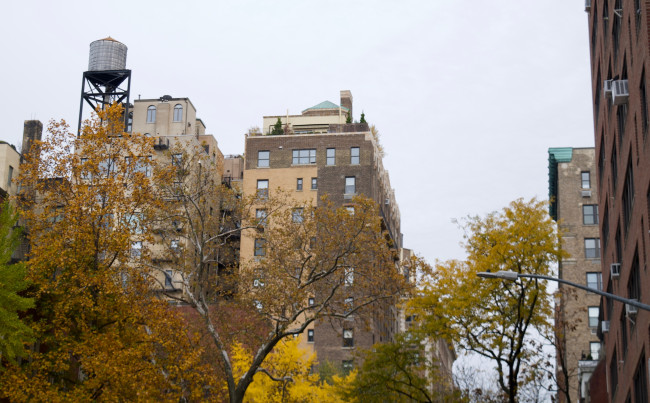What information can I get about how a co-op building is run before I put in an offer?

You should be able to access everything but the minutes of meetings before you put in an offer.
Emily Myers for Brick Underground
If you're in the early stages of your apartment search, you may be wondering what information you can get about how a co-op building is run before you put in an offer. What you find out can inform whether—or how much—you want to bid.
It's particulary a concern these days amid concerns about inflation: Buyers want to know if they can expect an increase in maintenance costs to cover building expenses. So what can you find out about how a board operates before you get an accepted offer?
The answer is: You should be able to get access to everything except the building's minutes before you make an offer. That means you can see the proprietary lease, house rules, financial statements, offering plan, and alternation agreement if you ask for it. However, much depends on your broker knowing the inner workings of a building you are considering.
Before you put in an offer you're in a "middle ground," says Howard Margolis, a broker at Douglas Elliman. He says you're in a better position to ask more probing questions once you have an accepted offer. "Now you’ve gone from potential buyer to buyer and the seller’s broker would be more interested in working with you," he says.
Even so, brokers recognize there are important questions buyers should be asking before they put in an offer. For example, Margolis says some co-ops won't let you refinance unless you've been in the building for two years. This could present problems if you're planning to make an all-cash offer but then take advantage of low mortgage rates soon after you've closed. You need to know that before you offer all cash.
Don't be afraid of co-ops in NYC
"Co-ops are generally 10% less expensive than condos. Their rules are designed to protect the value of your apartment and ensure your neighbors are financially sound," says Matthew Steer of SteerKelly Team at Keller Williams. "As your broker, it's our job to make sure you qualify for the building you're interested in. We have a 99.9% success rate of getting buyers board-approved." Get in touch with us >>
Start by asking your broker
There's lots of information that is easily available in digital form so getting the details isn't complicated, you just need to know where to look and what questions to ask. The proprietary lease and house rules will be scrutinized by your attorney once you have an accepted offer, however you can ask for an advance copy and find out if there's anything that would affect your offer: For example, what’s the rental policy? What are the rules about who can live in the apartment? What's the policy on renovations? Are incoming shareholders responsible for window repairs?
Most of the bigger brokerages have digital libraries of documents relating to hundreds of buildings. Hakim Edwards, a broker at Compass, says if you have questions, your broker should easily be able to find answers. "We have a library of financials, offering plans and other documents that should be able to help a buyer's agent get you that information quicker," he says.
Vickey Barron, a broker at Compass, says a sharp listing agent should have answers to all your questions at their fingertips.
"As a buyer you can ask for the most recent financials and the seller or seller's agent should be willing to share that with you before you make an offer," she says.
Finding out who manages the property
Another clue as to how a board runs is to find out who manages the building. Margolis says this can give you an idea of how the board thinks: "Is it a big company or an independent or is it self managed? That’s very easy to find out," he says.
A large company will probably have streamlined operations, an independent firm may have more nuance. Smaller buildings are more likely to be self-managed. Once you know who manages the building you can also approach them with questions. If you haven't received the co-op's financial statements from the broker you may be able to get a copy from the property manager.
Here's what you're looking for: What have the maintenance increases been over the past five years? Have there been any assessments? If so, what for? Is there any major work scheduled? What’s the underlying mortgage on the property? What’s the tax deductibility on the maintenance? What’s in the reserve fund?
"You can get these details from the seller’s broker and if they can’t get it, you can request it directly from the managing agent," Margolis says.
Finding a broker who knows the building
A broker with lots of experience in a specific neighborhood will typically know who to ask about a board, even if they haven't had a listing in the specific co-op you are looking at. Edwards works in the Brooklyn neighborhoods of Flatbush, Prospect Lefferts Gardens, and Crown Heights and says his clients benefit from his 18 years of experience.
"In 90 percent of the buildings I’ve probably either done deals there or I know someone who has listed in the building and can make a phone call to them," he says.
Another way of doing this is to look at the history of the building and identify who the listing broker was for other apartments in the building. Margolis says they might have some information about the building or the board that you would not get from your own agent. "They have nothing to lose by helping you although they may have to be careful about liabilities but it's another way of gathering background information," he says.
Once you have an accepted offer, your attorney will be able to read the minutes of meetings. This will give you the true flavor of how the building is run.
You Might Also Like



























